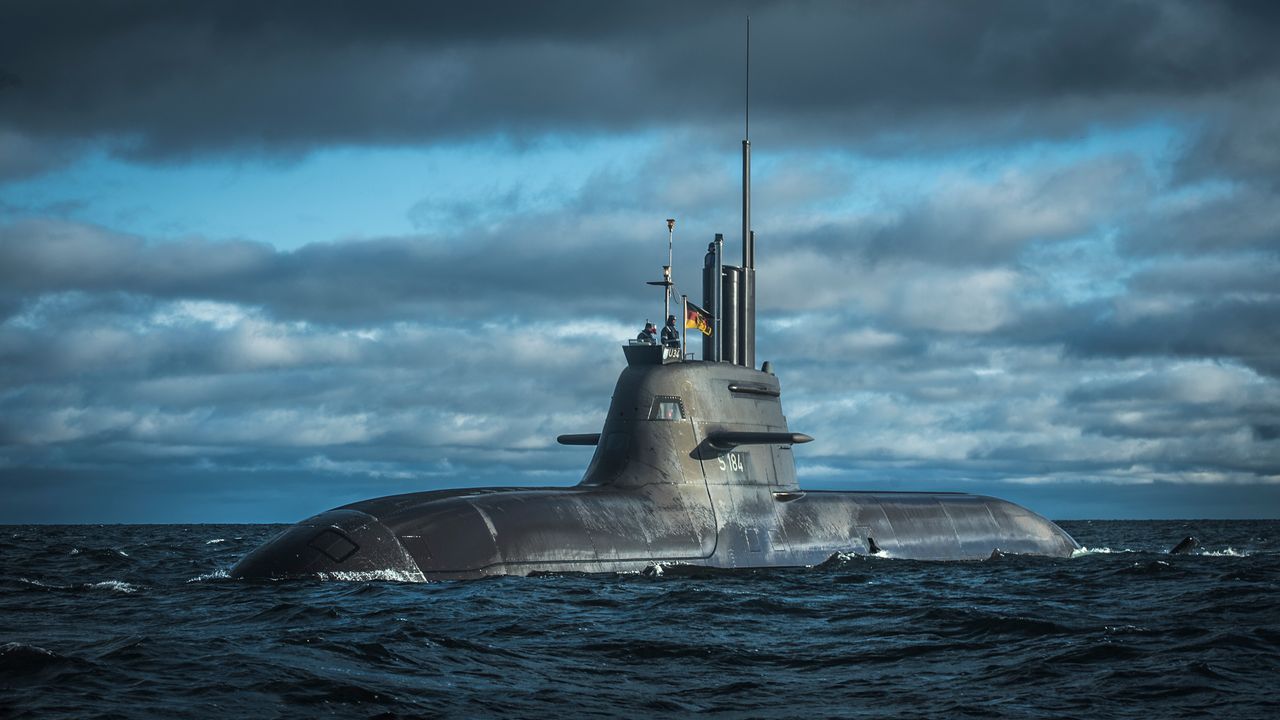
System and Equipment Courses
Immersive training courses – tailor-made training modules from basic to expert knowledge.
Training courses from a manufacturer with expert knowledge and training expertise, all tailored to your needs from a single source. We offer not only e-learning or computer-based training, but training customised to your systems and equipment.

The Solution
We offer immersive training courses for every use case regarding device or system or a vessel / submarine. Basic knowledge imparted in modules. Each course is using computer-based training and VR (virtual reality) application and follows a didactically structured learning path. From basic knowledge into compentence-oriented training. And this either as a single course for a specific device or system or as the holistic complete solution.
Target Group
All crew members & groups; experience-, role- and rank-independent
Basic knowledge Training Courses
Computer-based training - in the introduction, architecture and technical design, the trainee receives information and basic knowledge about the corresponding content and didactic structure of the learning module (graphics, text, audio script and animations). In the first step, the trainee earns information about: What kind of device is it? What is the device used for? Where is the device installed? How is the device constructed? CBT modules can contain non-graduated tests for self-check-up of the students. Assessments are graduated tests at the end of terminated training sections integrated in specific CBT modules. Questions pools for each assessment and a randomized selection prevent guessing of answers or cheating.
Competence-oriented training courses
In these courses, the trainees learn step by step how to operate and maintain the systems and equipment on board. The training follows a 3-step training principle: demonstration, practice, assessment. The Operating Mode explains how to use the device / system. Practical exercises are provided via VR (tasks, processes and correct communication). Depending on the trainee's future role and function, Preventive Maintenance (OLM) follows for maintenance work that can be done on board (e.g. changing the air filter on the diesel engine) or Corrective Maintenance (ILM), which usually has to be done on the pier.
VR modules contain a graduated assessment mode, which can be activated if required. The combination of computer-based training and the use of VR / AR offers the trainee realistic training. The trainee's learning motivation and learning performance are significantly increased by the use of digital training tools through sustainable and experimental. Information about the cross-linked net-work of interactive systems on board and the ship’s or submarine’s behavior is not just relayed visually and acoustically, muscle memory is also activated (kinesthetic learning) due to reiterative movement. The need for real ships in the training is reduced.

The Benefits.
Increased ship / submarine availability because there is no vessel for the initial training required
Faster availability of crew for operations & missions
Reduction of risks for men & material by eliminating human factors as result of digital learning
No interruption of operation on board due to training sessions
Improved training efficiency and effectiveness resulting in an increase of knowledge retention by est. 75%, recall accuracy by a median of 90%, rise of motivation and training attractiveness by 98%.
Quality assurance of training through standardization, flexible, goal-oriented use of training resources and professional learning process support; easy updates due to centralized training program administration
Cost savings (approx. >30% in total) due to less training time on board of a real ship (est. 60%) and higher training quality (see above)
Improved budgeting transparency, predictability & reliability
Cost efficiency due to one-time investment (no additional costs in the following years) and high scalability (within Immersive Training Courses, one or more than 50 Trainees can be trained)





